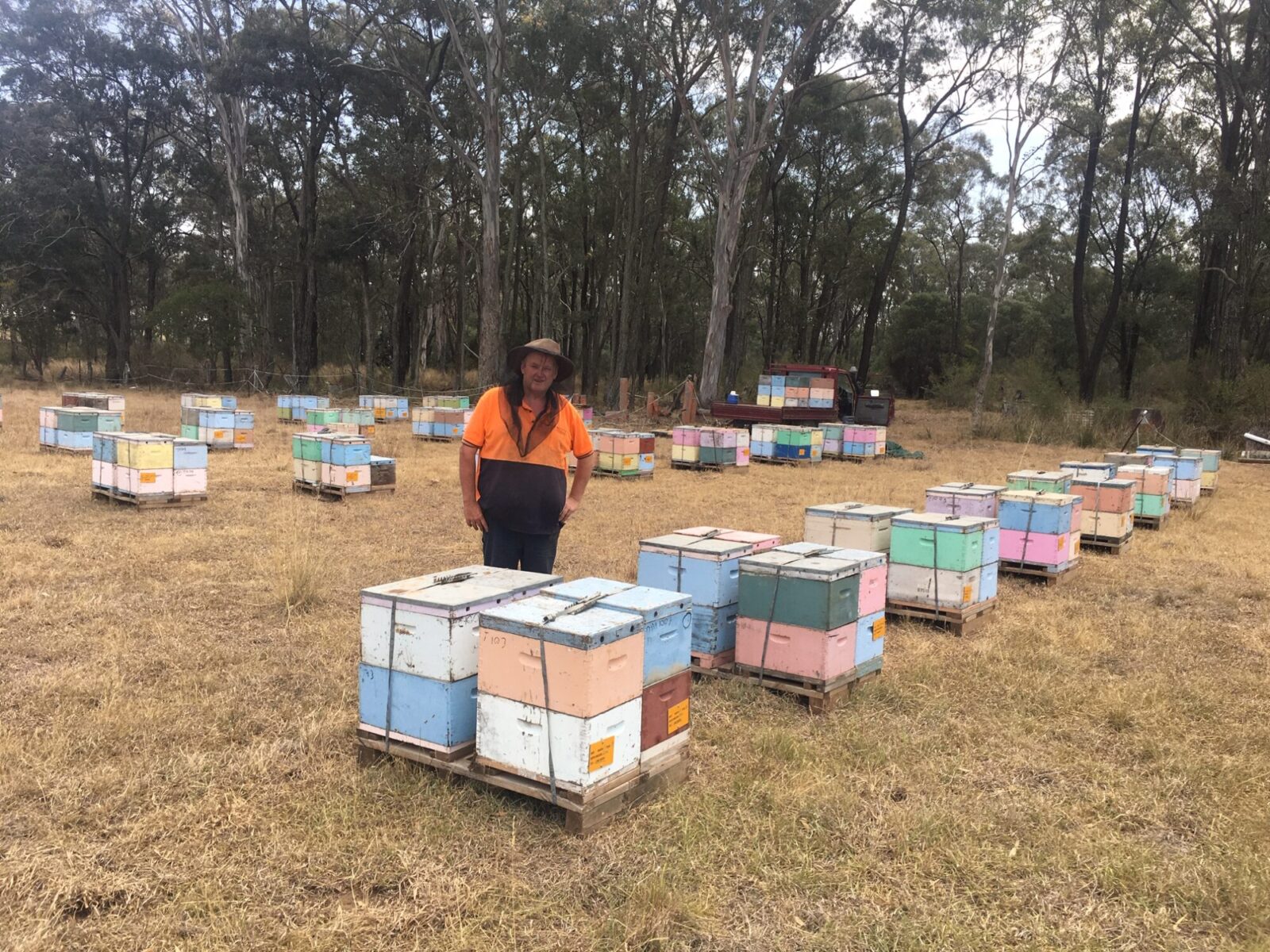
Drought and bushfires have impacted the environment, reducing the pollen and nectar honeybees need to survive and produce honey. Apiarists are now being forced to make a beeline for the coast in search of food for their starving bees.
Anthony Deighton is one such beekeeper. He has traveled thousands of kilometres from his home in Gundagai in a mostly unsuccessful search for nectar-promising bush. That is until he found a suitable location for his 600 bee hives on Benedict’s Menangle property! Without any hesitation Benedict offered to help and Wayne, our Menangle Quarry Manager, helped Anthony get set up – even putting on the beekeeper suit to inspected the hives. Our red gum and iron bark trees will supply nectar to keep his bees alive, and the Nepean River is within the bee’s 3k radius providing a much needed source of water. The bees in turn will pollinate the local flora providing valuable biodiversity for a healthy environment.
Anthony, now 50, started keeping bees when he dropped out of school at the age of 15 has never seen such tough conditions. Most of the big old trees in his area are showing signs of stress, shredding leaves and fighting to survive the drought. Even if the drought breaks it could take years for the bush to recover. In a season he would normally fill 300 44-gallon drums. In the past year he has managed to fill only 28 drums. He will need to start feeding the bees in February to keep them alive if it doesn’t rain.
Australia has around 1,500 commercial beekeepers, with approximately 800 of those supplying Hive + Wellness Australia which markets the Capilano brand. Conditions are so bad that Capilano honey has begun importing honey for the first time in 50 years. “This would be our worst year for honey receivals in our history,” says the company’s managing director, Roger Masters. “At the moment things are looking pretty grim for another year or perhaps two,” he says. “Areas affected by bush fire can take up to five years to come back to being able to bear a honey flow.”
Beekeeping plays a significant role within the agricultural sector. It is essential, not just for honey and other hive products such as bees wax, but more importantly for the pollination services provided by bees. Incredibly, two thirds of Australia’s agricultural diversity benefits from honey bee pollination.